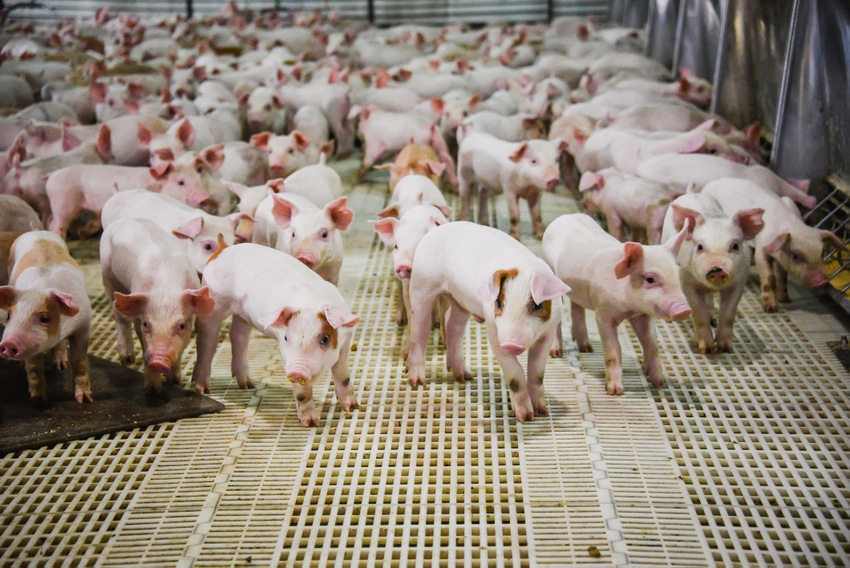Naturally produced butyrate shows growth benefits for weaning pigs
Preliminary studies demonstrate increased weight gain and better feed efficiency in weaning pigs fed butyrate product.
May 1, 2019

White Dog Labs (WDL) announced that testing at the University of Nebraska-Lincoln (UNL) demonstrated good benefits from its naturally produced, butyrate-rich feed additive (MiruTyton) for swine.
According to the announcement, the UNL research showed statistically significant improvement in weight gain and feed efficiency, particularly during the first two weeks after pigs were moved from the sow into the nursery.
The feed additive is a liquid co-product of WDL's single-cell protein product for aquaculture (ProTyton), the company said, noting that it has developed and scaled up the anaerobic fermentation process for these products and has signed an agreement to produce them at the MRE ethanol plant in Sutherland, Neb.
"We are happy to announce these results, which were demonstrated in collaboration with professor Phillip Miller at UNL,” WDL chief executive officer Bryan Tracy said. “These results add to our previously announced growth benefits for poultry," and because the butyrate feed additive "is a co-product, it provides pricing flexibility, which could result in a positive impact on both industries.”
“Nursery pigs’ change from milk to solid feed can cause gastrointestinal stress, with the possibility of intestinal inflammation and underdeveloped gut,” Miller said. “Butyrate is known to have several positive modulatory effects in the gut, so the goal of this study was to test the effects of (the product) on growth performance. This preliminary study was carried out with 64 nursery pigs, four treatments (0, 300, 3,000 and 15,000 parts per million of MiruTyton), four pens per treatment and four pigs per pen (two barrows and two females). The study lasted four weeks, but residual effects in week 5 were detected as well.”
The results indicated a statistically significant improvement in weight gain and feed efficiency during the first two weeks postweaning for the 15,000 ppm treatment versus the control, the announcement said.
Miller added that the butyrate product "particularly enhanced feed intake and feed efficiency across all treatments during the first week -- a very stressful transition time. The average weight gain of all the treatments was four times that of the control during this first week. It is also worth noting that there was a positive residual effect in week 5 for the 15,000 ppm treatment, with increased weight gain driven mostly by improved feed efficiency."
Miller concluded, "Results are encouraging and should be followed up with more expansive studies to confirm and validate these results.”
Source: White Dog Labs, which is solely responsible for the information provided and is wholly owned by the source. Informa Business Media and all its subsidiaries are not responsible for any of the content contained in this information asset.
You May Also Like



